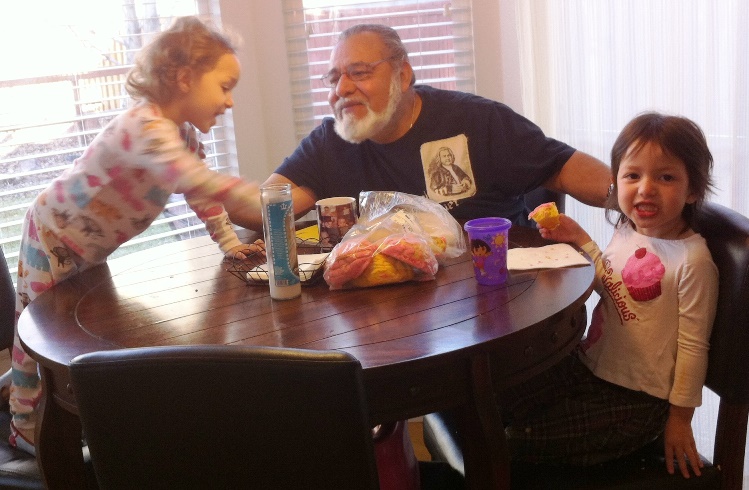Throwback Thursdays: Photos, essays, poems, videos and words of memories from our stuttering past
My dad influenced how I felt about stuttering during my teen years. My teen years flourished with powerful stuttering blocks. At that time I didn’t know that the way I spoke was called stuttering. In my culture, the messages I received came from old myths. I spoke this way because somehow I was “cursed.” I spoke this way because I was “spoiled.” I spoke this way “on purpose.”
Hearing these messages while figuring out my identity, as a teenager, was overwhelming. Was I cursed? Was I spoiled? If these were truths, I can change my destiny. I can just “talk right.” As you can imagine, I quickly learned that this was not possible and somehow I had to live with this pain- the suffering of stuttering.
My dad and I wrestled with how the I-suffer-because-I-stutter phenomenon. We had many arguments and many soulful discussions. In my early 20’s, I was asked to speak at the Friends Convention about my stuttering journey and the audience was parents of kiddos who stuttered.
This opportunity was priceless. I approached my dad and asked him, “Dad, what should I share with these parents about their children who stutter?” He looked at me and bravely shared “Tell them it’s not their fault. And that they need to see past the stuttering into the beauty of their children.” There you have it!
What challenges did you overcome to reach a place of healing?
Image: Dad with my daughters, Julia and Maya.
Liz Mendez
![]()


Thank you for sharing your journey, and the sweet picture of your father with his grandchildren! 🙂
Can you speak a little bit more about your cultures response to stuttering. Was your treatment always culturally appropriate?
I recently was at a stuttering conference, and a father of a teen who stuttered shared how concerned about the “double issues” that his son would be experiencing with being a black man who stuttered.
Also — In my counseing practice, this past summer I treated a nine year old hispanic girl who stuttered. English was her second language. Her mom stated she also had stuttered. It didnt sound as if she ever received treatment.
I’m now seeing a female who stutters, who is Asian. I’m keenly aware of not putting my own experience on to hers.
The cultural differences need to be taking into consideration with treatment – whether speech therapy or counseling/mental health services.
Nora O’Connor
Los Angeles, Ca
I appreciate your question. In my professional practice, culture frames the treatment strategies we employ. I have experienced a deepened therapeutic relationship when culture is part of the conversation. If I sought treatment as a young girl, and the therapist asked about how my family sees stuttering or communication, treatment would have focused on the whole perdon rather than just speech disorders. This also places value on the way we define family- moving from the nuclear defn to include extended members- so common in the Latino culture. Hope this helps!
What a lovely photograph! Can you speak to how you and your father developed your views you have today?
elizabeth kapstein
nyc
As you can imagine, we weathered some difficult conversations ranging from cultural nuances to teenage rebellion and family values. By confronting this issue and facing it head on we evolved into a deeper understanding. He was by my side when I explored my speech.
Thank you for this memory!
Thank you for sharing such a wonderful story!
I am currently a speech-language pathology graduate student and it makes me so happy to hear your dad was abe to help you through your struggle with stuttering. While I have not personally stuttered, my dad has always been a strong figure in my life to help me overcome struggles I’ve encountered in my life.
What kinds of things did your father tell you to help you feel more at ease about your speech?
Thank you for that question – even though it’s been years – I still remember these teaching moments. At first, his questions were “just say the word, don’t you see that it’s so easy?” Then his statements became more empowering “You have nothing to fear, I’ll be here while you give your speech.” Then of course the ones that just get you at the core “You have taught me so much, I am a better father because of you.” As you can see, it was how he said what he felt – words are powerful.